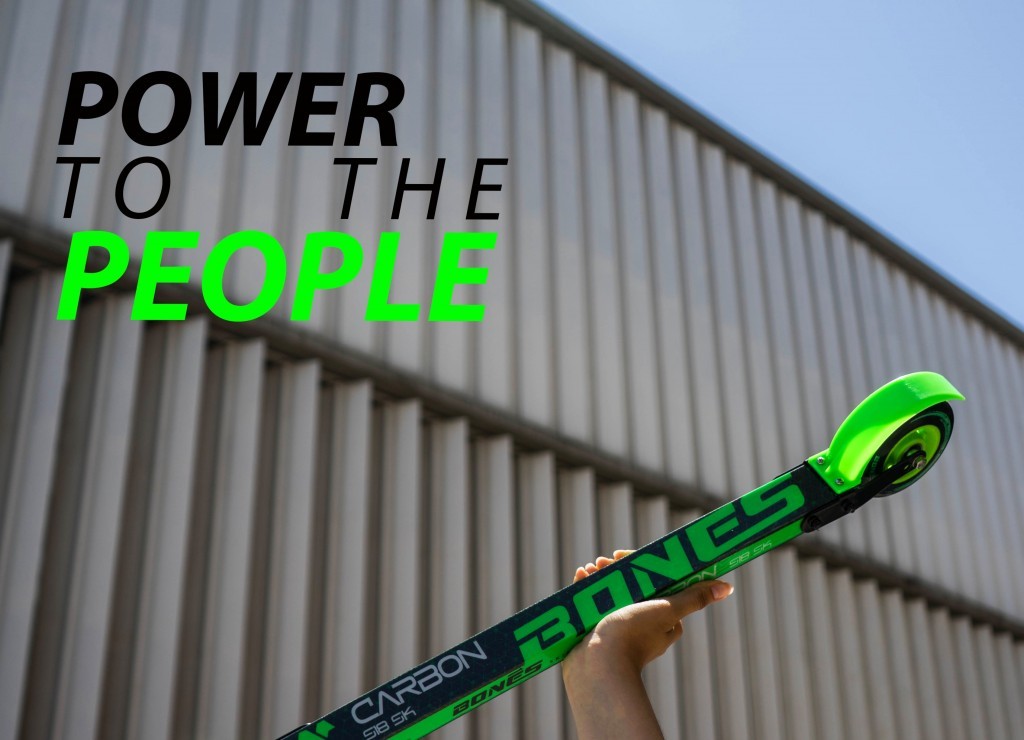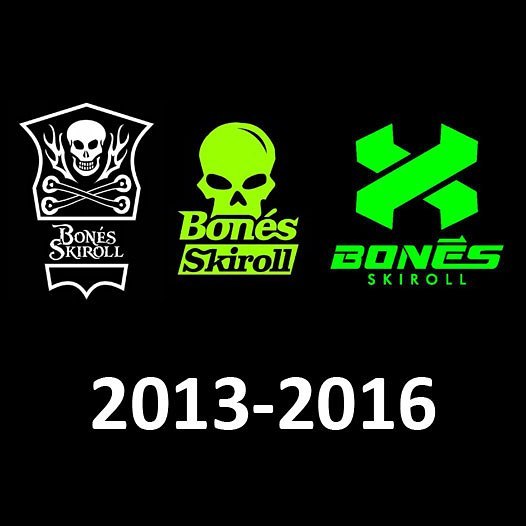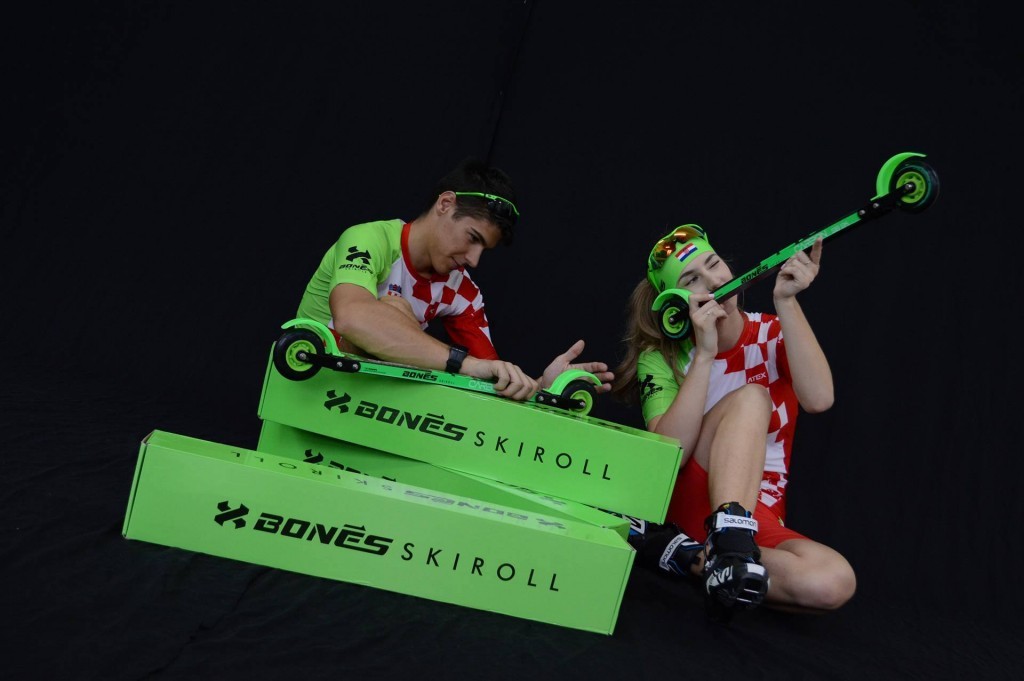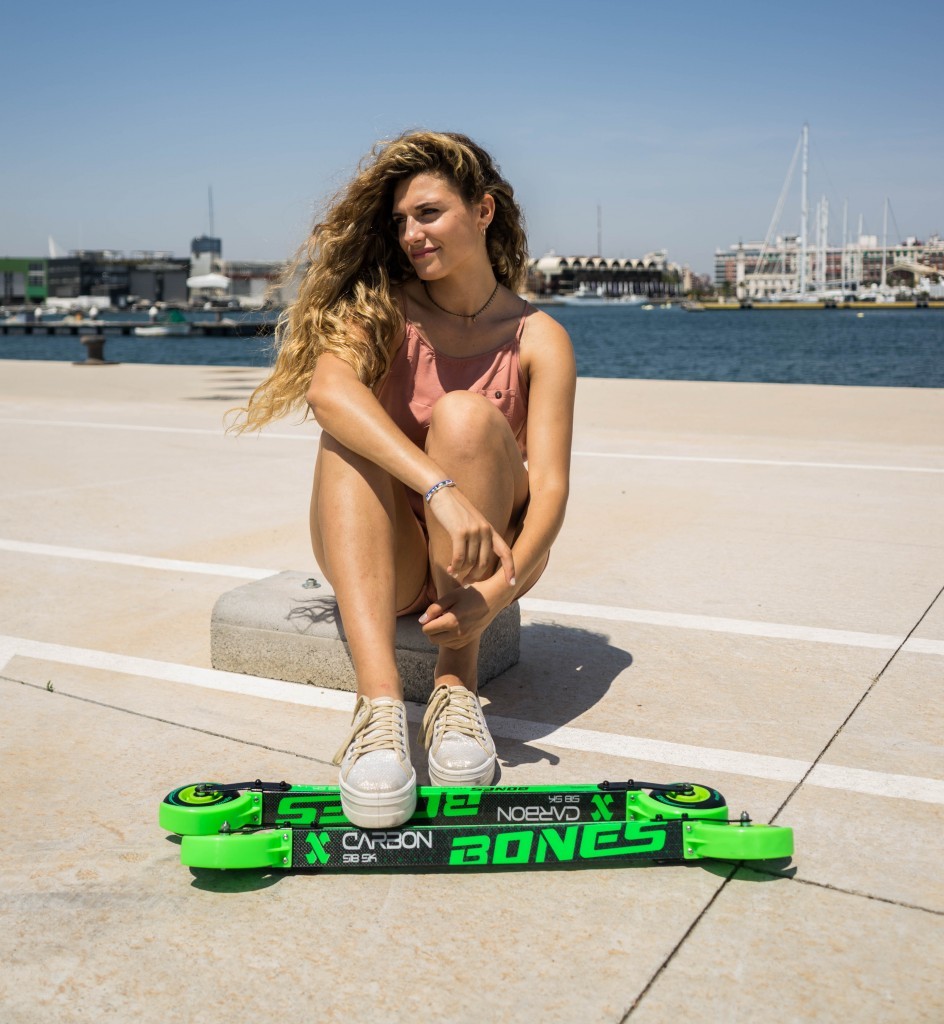
Rollerski market is a very dynamic one – popularity of “skis of wheels” spreads, more people in more countries are starting to use them for sport and recreation. To meet a growing – and diversifying – demand, more rollerski designers & producers step in, including those from countries where rollerskiing was previously unheard of.
We continue introducing rollerskiing brands (and their creations) here at the Daily Skier.
Today we talk to founder and owner of Bonés Skiroll, Spain – Jorge Vidal.
Our conversation went long and we found it to be so interesting that a decision was taken to split the story into two parts. Part 1 deals with the brand creation and objectives achieved – while part two addresses the issues that we consider to be the most important: how to make skiing/rollerskiing a truly “people’s sport” – and to grow business in process. Enjoy

===========================================================================================
Bonés Skiroll (pronunciation [ bo ‘nes ] ) was founded in 2013 and takes its name from the Sierra de Bonés, in Huesca (Spain), a mountain chain, the roads of which serve to test the products before they are released on the market. Bonés Skiroll bears no relation to and should not be confused with legacy Californian company Bones Bearings [ boʊnz].
When Bonés rollerskis have appeared on the market, they caused a minor sensation : first, there was a skull & bones logo – aesthetics typical for skateboard/snowboard crowd but totally unheard of in the more conservative skiing world. The second one was their price: Raptor, a skating model, was selling for just EUR 99 – something that no producer outside of China and Russia could match.
Just a few years later Bonés Sport is older, more mature, have dropped their skull logo
(“some customers were complaining”) – and are selling carbon-reinforced skis to professional teams , competing on the World Cup circuit .
It is still, however, based in the town of Jaca, best known in the skiing word for hosting the 2007 Winter European Youth Olympic Festival
===============================================================================================

Jorge, how’s Bonés Skiroll came in being?
– Unlike other brands that focus on cross country skiers, we started in a totally different way. We were not skiers, you see. In my case I have knee problem so I couldn’t practice any sport with knee impact. That’s how I discovered Nordic Walking (by the way, the founder of Original Nordic Walking, Marko Kantaneva, is already using our rollerskis) that was really helpful for me, but I wanted something harder to do. Then I found the rollerski videos on Internet – and was fascinated. But there was not much on offer in Spain when it comes to rollerskis, besides, it was really expensive to buy a complete set, so then and there I have decided to make my own rollerski – aiming for it to be cheaper than what was already on the market.
What sets Bonés Skirol apart from the rest of the rollerski producers – how are your products better and/or different from the rest ?
– The first model, it was not very good, in fact it was a terrible one, but I made new friends on the ski tracks that offered to help me to improve that first model. Back then we never thought of becoming a big player on rollerski market – we simply wanted to build a cheaper one, but then we realized that so many people in fact wanted the same! That’s how Bonés Sports was born – to help people who wanted to start in that sport and who are not trained cross country skiers.
We are no better or worse than other rollerski makers – just another option for customers. What we wanted, is to make rollerski more available. In Spain there were a very few people doing rollerskiing , just the “crazy ones”. Now in many cities they are groups of people that train together. That´s awesome because we helped this to happen. Is not that our rollerskis are lighter, or faster, – it’s just that we had an answer to people’s request.
-Like you said, Spain is not exactly a world center for either cross country skiing or rollerskiing. What are you doing to help change that?
– Well, Spain is a warm country, and it seems that winter is getting shorter and shorter every year… When it comes to rollerski, there are around 20-22 races in the country now – and that number increased a lot in the last two years. We also planning a nice suprise for for 2018 (or 2019 ) that will turn Spain into the center of the rollerskiing world!
We have been sponsoring races and young atheltes/ ski clubs from the very beginning. As we said, we at Bones are not professional xc skiers, so our sponsored athletes are the ones who develop the products, it’s essential for us to have many of them in the races too. Their impressions is the most important feedback we have, without that we didn’t have any change to grow up. We are proud to say that our rollerskis were made through the street test, not in a meeting hall.
– You have very interesting niche products – like the Skimo for ski mountaineering. Tell us more about your ideas behind offering stuff nobody else seems to.
When we were developing our first composite frame, we did a test of 3 new versions with a professional xc skier that was also into ski mountaineering. One of the frames was not good for xc ski – bad balance, too slow, but a tester said that she had a similar feeling as if she was on a pair of mountaineering skis, so we took that prototype and kept on making changes till we had a product that people said “ wow, it’s like you take off your skis and put these rollerskis and you don’t find the difference !“
The ski mountaineering market is now bigger than that for cross country skiing in Spain, and together with the National Team we promoted that model well – to the point that it is, probably, our top seller now. In September we will launch also a special boot for this kind of skiers.
– The world is becoming smaller – do you feel the competition coming from the Chinese rollerski manufacturers – both “pirate copies” and those original ones, producing under their own names like Snowwin etc. ?
– They would not steal customers from the other brands, – instead, they would help create new rollerskiers. Eventually those new customers, those new rollerskiers, they would develop a need something better – and then they will start buying the European brands. Besides, Chinese-made is not equal to low quality, our classic wheels for example, are made there. We found them to be better suited to meet our requirements we than what we found with European producers.
The advantage of European or American brands is that we know what we are doing, we know our customers and how they how are going to use them – our customers live next door. The day that Chinese people will start using rollerskis and manufacturers would have immediate feedback – then it will be a harder problem for us. . But anyway, nothing is going to stop that Made-in-China phenomenon, there is no time for crying – it’s time to do things better here, listen to customers, and to be able to offer answer to their requests.
– How far did you advance in your four years of existence as a company?
– Well, we have three to six people working for Bones Sport (depending of the season) and we have reached a milestone of 1.000 pairs sold per year, which is much more than we have expected. In 2018, however, we are going to double that number easily, so more people are coming on board at the beginning of September to fulfill the orders for 2018. It’s going to be hard but fun at the same time. Probably we will need to move from our current place to a bigger one!
…From scratch to a company with hundreds of thousands of Euros in turnover and products sold all over Europe. Naturally, we wanted to know how did Bones manage that – to learn more, read the second part of the interview with Jorge Vidal, founder of Bonés Skiroll

